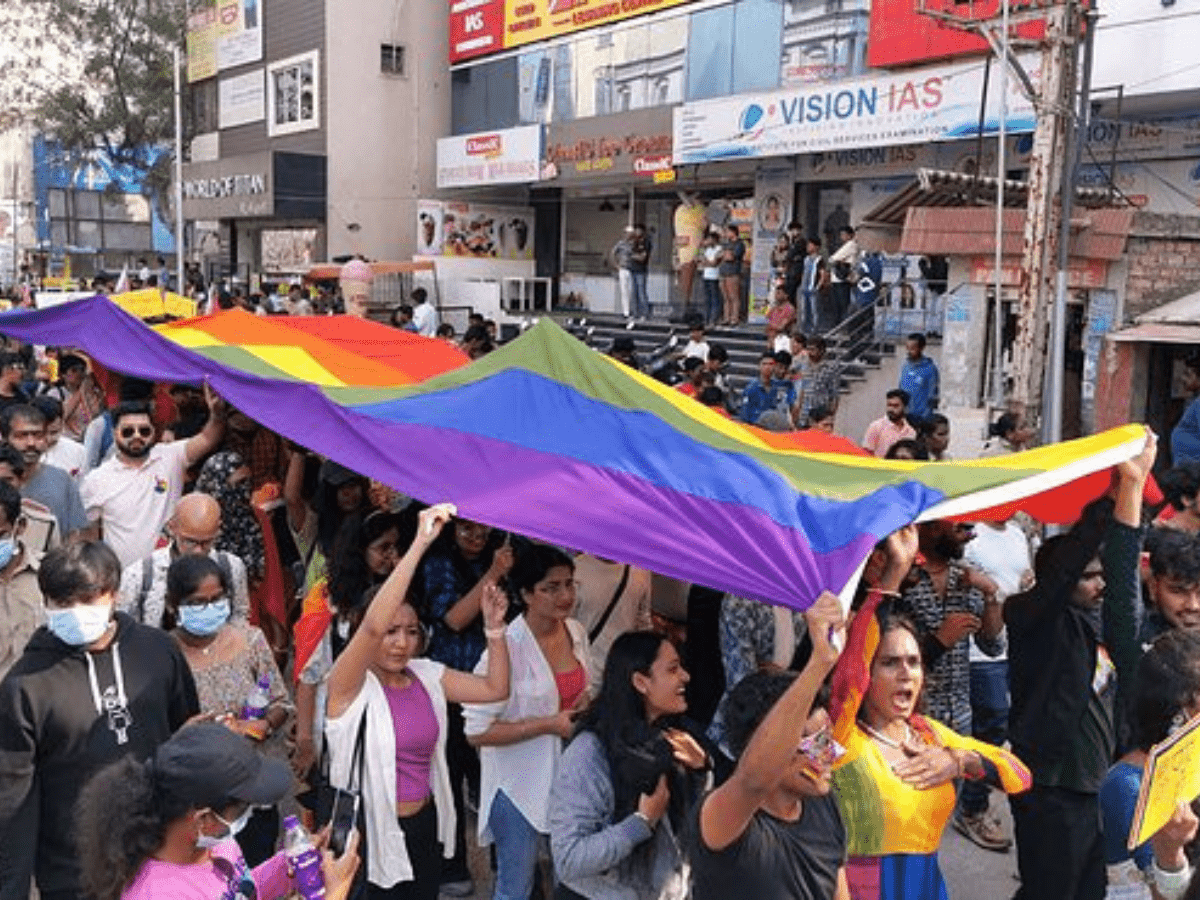
New Delhi: While hearing a batch of petitions seeking legal sanction to same-sex marriage, the Supreme Court on Tuesday orally observed that there is no absolute concept of a man or a woman and it cannot be only about the genitals, rather it is far more complex.
Solicitor General Tushar Mehta, representing the Centre, submitted before a five-judge bench headed by Chief Justice of India D.Y. Chandrachud that there is a legislative intent that a marriage can only happen between a biological man and a biological woman, including Special Marriage Act.
Chief Justice Chandrachud told Mehta, “Very important judgement you are making. That very notion of a biological man is absolute and the notion of biological woman is also absolute…” Mehta said a biological man is a biological man and it is not a notion.
The Chief Justice said, “There is no absolute concept of a man or a woman at all…it cannot be the definition of what your genitals are, it is far more complex. Even when the Special Marriage Act (SMA) says man and woman, the very notion of a man and notion of a woman is not an absolute, based on what genitals you have….”
During the hearing, Mehta stressed that his preliminary objections against the maintainability of the petitions seeking same-sex marriage should be decided first and added that all states should be issued notices before a decision is made by the top court.
Mehta submitted that the institution of marriage affects personal laws. The Hindu Marriage Act is a codified personal law and Islam has their own personal law, and part of them is not codified. The bench – comprising justices Sanjay Kishan Kaul, S. Ravindra Bhat, Hima Kohli, and P.S. Narasimha – replied that it is not getting into personal laws.
Senior advocate Mukul Rohatgi, representing one of the petitioners seeking recognition of same-sex marriage, submitted that his clients seek a declaration that “we have a right to get married.” The counsel said the state will recognise that right under the Special Marriage Act and the marriage will be recognised by the state after the declaration of this court.
Rohatgi contended that this is because even now we are stigmatised, and this is even after the Article 377 judgment, and that the Special Marriage Act should mention ‘spouse’ instead of man and women.
Senior advocate Rakesh Dwivedi, appearing for one of the parties in the matter opposing same-sex marriages, argued that marriage between man and woman is not a gift of law, but existed since time immemorial and marriages are necessary to perpetuate the human race itself. Dwivedi contended that even SMA has provisions reflective of personal laws and talks about different marriageable age for a man and a woman. How would one reconcile with these (who is man and who is woman)?
Senior advocate Kapil Sibal submitted that he is all for such relationships but is concerned about the societal severe consequences, which may follow after declaration and questioned, what happens if they adopt a child and later want to separate? Who gets maintenance?
Sibal stressed that if piecemeal arrangement is done then it will create more complications, which will hurt the community and in other countries where same-sex marriages were recognised, they overhauled the entire legal framework.
The arguments in the matter will continue after 2 p.m. The Centre has told the Supreme Court that the demand for same-sex marriage is a “mere urban elitist views for the purpose of social acceptance,” and recognising the right of same-sex marriage would mean a virtual judicial rewriting of an entire branch of law.
The Centre’s response came on a batch of petitions challenging certain provisions of the Hindu Marriage Act, Foreign Marriage Act and the Special Marriage Act and other marriage laws as unconstitutional on the ground that they deny same-sex couples the right to marry or alternatively to read these provisions broadly so as to include same-sex marriage.
(Except for the headline, this story has not been edited by Siasat staff and is published from a syndicated feed.)
